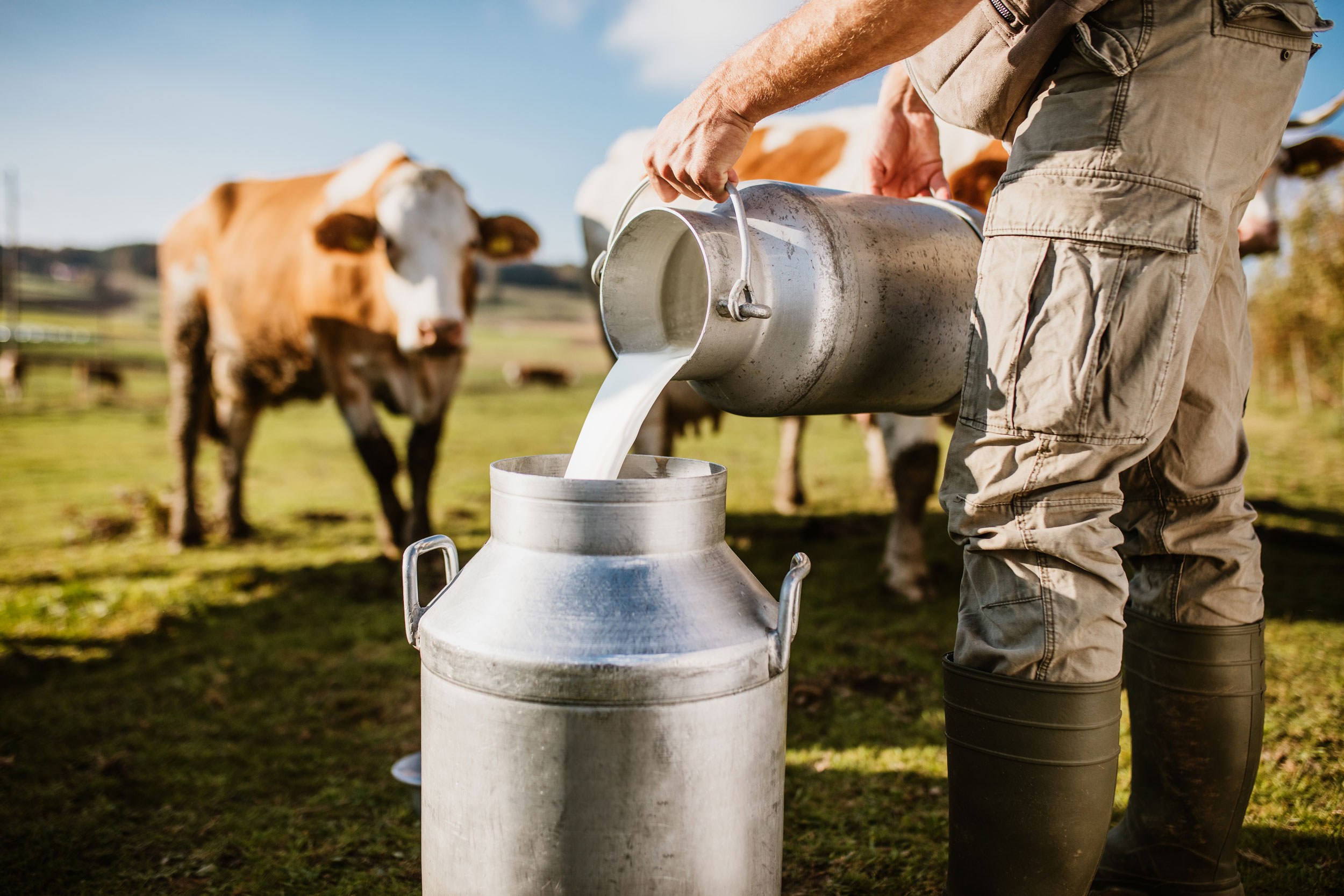Milk
Milk, a nutrient-rich liquid produced by mammals, has long been a staple in human diets. Its versatility in culinary applications, coupled with its nutritional value, has made it a foundational ingredient in numerous cultures. In Alberta, a province known for its thriving agriculture, dairy producers take pride in delivering high-quality cow, buffalo, goat and sheep's milk that becomes part of daily meals and exceptional culinary creations.

About
Milk is primarily composed of water, fat, proteins, lactose, and various vitamins and minerals. The balance of these components can vary based on the animal source, breed, diet, and other factors. In Alberta, the dairy industry is substantial, with numerous farms dedicated to producing top-tier milk. These farms often prioritize sustainable practices, animal welfare, and innovation in dairy production. Alberta's temperate climate, coupled with its vast expanses of grazing land, provides an ideal environment for dairy cattle, ensuring they produce milk of premium quality.
History
The history of milk intertwines with the story of civilization. As humans transitioned from hunter-gatherers to agricultural communities, the domestication of animals, including dairy cattle, played a pivotal role. In Alberta, the dairy industry has roots that date back to the province's earliest days. European settlers brought with them dairy farming practices, which have since evolved with advances in technology and understanding of animal husbandry. Over the decades, Alberta's dairy farms have grown in number and sophistication, with producers continually seeking ways to enhance the quality and sustainability of milk production.
Ways To Cook
Milk's culinary applications are vast and varied. It's a primary ingredient in many beverages, from the simple glass of cold milk to lattes and smoothies. In cooking, milk serves as a base for creamy soups, sauces, and gravies. It's essential in baking, lending moisture and richness to cakes, bread, and pastries.
Alberta's dairy producers also contribute to the making of cheeses, yogurts, and ice creams that are enjoyed both locally and beyond. When using milk in cooking, it's crucial to consider its fat content, as this can influence the texture and flavour of the dish. Whether you're making a béchamel sauce, a creamy risotto, or a decadent dessert, milk from Alberta's dairy farms ensures a touch of richness and quality.
Recipe Links
Some Of Our Favourite Videos
Alberta Milk Producers
Breevliet Dairy
About this producerFoods from this producer:
Rock Ridge Dairy
About this producerVital Green Farms
About this producerVermeer's Dairy
About this producerFoods from this producer:
